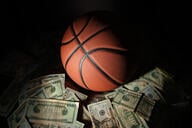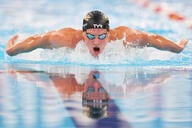You have /5 articles left.
Sign up for a free account or log in.
The University of North Carolina at Chapel Hill last week released new guidelines for how coaches, counselors and faculty members should and should not communicate about the academic work of athletes.
While officials say the guidelines are more of a clarification of an existing policy than a new one, critics of UNC and big-time college sports say the rules are a long overdue -- though not wholly significant -- step for the university.
“It’s helpful,” said Bob Malekoff, a lecturer and adviser in UNC's Department of Exercise and Sport Science and the former director of research for the Center for the Study of Sport in Society. “Not that it solves everything, but it’s always helpful to have that base standard. If nothing else it clarifies what the expectations are.”
For 20 years, some employees at UNC knowingly steered about 3,000 students -- 1,500 of them athletes -- toward no-show courses that never met, were not taught by any faculty members and in which the only work required was a single research paper that received a high grade no matter the content. The National Collegiate Athletic Association is currently conducting an investigation into the matter.
In June, the Southern Association of Colleges and Schools Commission on Colleges, UNC’s accrediting organization, placed the university on 12 months of probation, after which officials must prove UNC has taken sufficient steps to ensure it is in compliance with accreditation standards by demonstrating it has complete "administrative and fiscal control over its intercollegiate athletics program." The new guidelines are a part of that effort.
The guidelines, outlined in a report posted online by the university, bar coaches from initiating contact with faculty members about an athlete’s grades and prohibit faculty members from asking advisers about what grades athletes need to remain eligible. Coaches who have concerns about an athlete’s grade, the guidelines state, should contact the university’s Academic Support Programs for Student-Athletes, or ASPSA.
“ASPSA does not attempt to pressure faculty to provide special treatment,” the report stated.
The guidelines were met with a shrug this week by the editorial board of the News & Observer, the newspaper that first reported on UNC’s scandal. “If officials of UNC-Chapel Hill are expecting ovations and breathless cheers for their announced guidelines for athletics and academics, they are likely to be sorely disappointed,” the board wrote. “Had academic and administrative leaders been doing their due diligence of oversight, this kind of report never would have been necessary.”
The academic fraud at UNC had little to do with inappropriate contact between coaches and faculty, and the misconduct was primarily carried out by the head of an academic department. Malekoff, of UNC, said that most head coaches at big-time football and basketball programs are already unlikely to engage in this sort of communication given the scrutiny it now receives.
Indeed, the majority of academic scandals involving Division I college athletics in recent years -- and there have been several -- have involved university employees secretly completing course work for athletes, rather than coaches brazenly attempting to pressure faculty members into changing a grade.
“Not to say it’ll never be violated, but today there’s a culture where people understand that that’s not OK,” Malekoff said. "If someone did this sort of thing doing 25 years ago, nobody would have thought it was a big deal. Today, everyone almost immediately says, ‘That’s not OK.’”
That isn’t always the case, however. When Kyle Flood, the head football coach at Rutgers University, asked a part-time lecturer earlier this year to allow a football player to complete extra-credit assignments after the semester had already concluded, the lecturer did not tell administrators about the misconduct.
Rutgers already had a clear rule in place stating that such communication was not allowed. Rutgers’s policy is similar to the new guidelines at UNC, saying that “coach-initiated contact is not permitted between any member of the coaching staff and any Rutgers faculty member or associated instructional staff.”
The NCAA does not have any rules about communication between coaches and faculty members. The NCAA only prohibits athletes from receiving extra benefits due to such contact. “Schools make their own policies and our rules dictate the school follow that policy,” Emily James, a spokeswoman for the NCAA, said.
David Hughes, president of the Rutgers faculty union, said that NCAA rules have more teeth than university policy as they carry harsher sanctions and penalize the institution rather than just the rule breaker. A change in NCAA policy, he said, could better deter coaches from reaching out to faculty.
At the same time, Hughes said, changes in NCAA rules would do little to address what he believes is a larger structural issue among Division I college athletics. Some faculty members -- especially part-time lecturers and adjunct professors with little job security -- are simply afraid to stand up to coaches or report their behavior to administrators.
“The system didn’t work here,” Hughes said. “If the system had worked, then the instructor would have said, ‘Well, no, I’m not changing any grade and you’re not supposed to be talking to me.’ The rules were fine, but the instructor didn’t act upon the rules. The problems of intercollegiate athletics are so vast that I think it will take much more than one or two rules to rein it in.”




